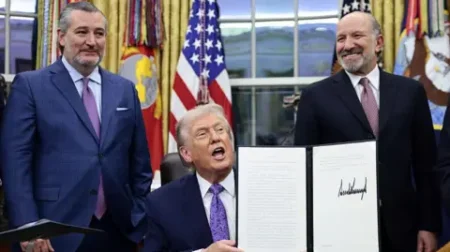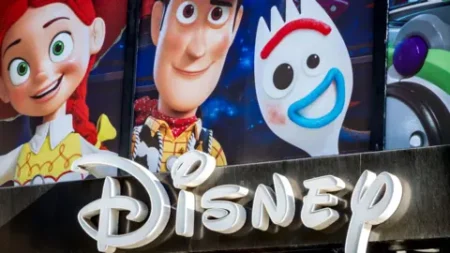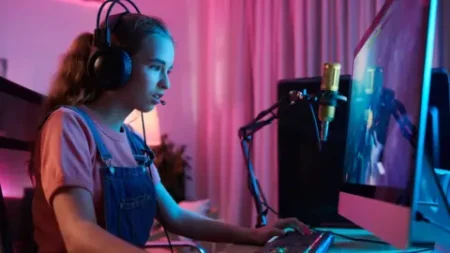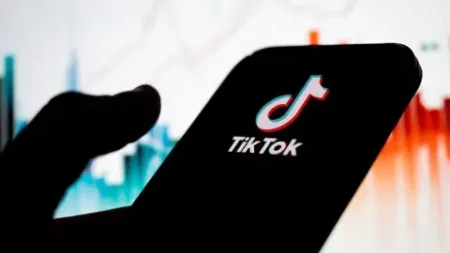On a recent Thursday, former First Lady Melania Trump made headlines with the announcement of an audiobook version of her memoir, intriguingly titled “Melania – The AI Audiobook.” However, the notable aspect of this release is that Melania Trump will not be the one physically narrating the book. Instead, the narration is entirely generated using artificial intelligence, which uniquely mimics her voice. In a social media post on X, she expressed her excitement about this emerging trend, stating, “I am honored to bring you Melania – The AI Audiobook – narrated entirely using artificial intelligence in my own voice.” She heralds this innovation as a transformative step for the publishing industry.
Melania Trump’s venture into AI-generated narration is indicative of a broader trend sweeping through the media landscape. She is not the first to explore this technology, but her high-profile position shines a spotlight on the evolving role that AI may play in media creation. This development raises significant questions regarding the future of employment in the industry. As more people turn to AI for tasks traditionally performed by humans, there are palpable concerns surrounding the possible reduction in job opportunities. Alex Connock, a senior fellow at the University of Oxford’s Saïd Business School, reflects a balanced view on this transition by stating, “It’s too reductive to say, yes, that’s an inevitable cut in the number of jobs,” emphasizing that while job changes are imminent, they may not be as drastic as feared.
The technology behind the AI narration of Trump’s book has been created under her supervision, promising a product designed to sound authentically like her. Various experts have noted that the use of AI in voiceover work is becoming increasingly common, propelled by advancements in technology from companies such as Google and ElevenLabs, the firm responsible for the creation of Trump’s audiobook. The novelty of AI-generated narration, particularly in such a high-stakes context, brings the conversation about AI’s role in creative endeavors to the forefront.
Despite these advancements, many experts believe that there will not be an immediate and widespread replacement of traditional voiceovers, as Clay Shirky, vice provost for AI at New York University, pointed out. He suggests that while we are witnessing a significant milestone, the transition to AI-driven content is likely to happen gradually.
The backdrop to Melania Trump’s audiobook release is marked by a surge in tools from tech giants making it easier for anyone to generate realistic audio and video content with minimal expertise. Just weeks before her announcement, Google introduced a more sophisticated version of its video generation tools, capable of creating audio dialogues that align with visual scenes. As the AI landscape continues to evolve, companies are keenly aware of the need to adapt to maintain competitive relevance in an industry increasingly dominated by digital creators.
The impact of artificial intelligence isn’t limited to media creation. The emergence of AI-driven content has sparked ongoing debates concerning its implications for the job market, especially in roles traditionally filled by humans. Reflecting this concern, a recent report by the World Economic Forum revealed that approximately 41% of employers are considering downsizing their workforce due to the increasing integration of generative AI in workplace tasks. Such anxieties are particularly pronounced in media sectors, where changes prompted by AI technology have led to significant industry shifts, including the strike by members of the Writers Guild of America (WGA) in 2023. This strike aimed to protect creative jobs from being threatened by AI’s capabilities in writing and script generation.
While the essence of whether AI will eventually replace media jobs remains a contentious and complex issue, many experts acknowledge that certain areas, particularly simple voiceovers, may see quicker adaptation to AI technologies. Conversely, roles demanding nuanced human interaction, like investigative journalism, are less likely to be replaced. Shirky underscores the importance of human elements found in these sensitive roles that AI cannot easily replicate.
In navigating these challenges, there is potential for the media industry to evolve rather than suffer, as companies may shift their hiring strategies to emphasize expertise in AI technology alongside traditional skills. Connock predicts that as the industry changes, teams may blend traditional arts professionals with those skilled in coding and academic research.
Ultimately, as Melania Trump’s venture illustrates, the intersection of artificial intelligence and creativity is becoming increasingly pertinent, welcoming dialogue about the future of content creation and employment in the era of digital innovation.











